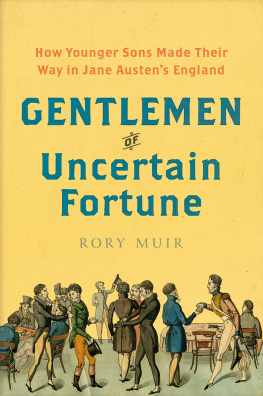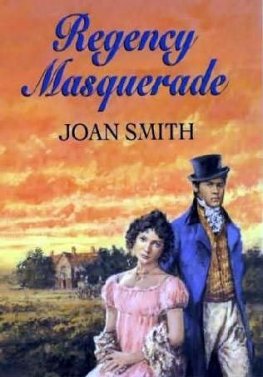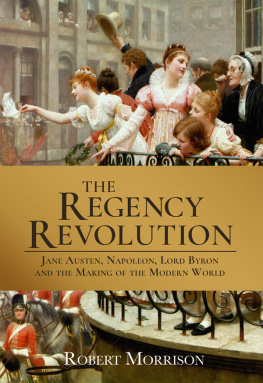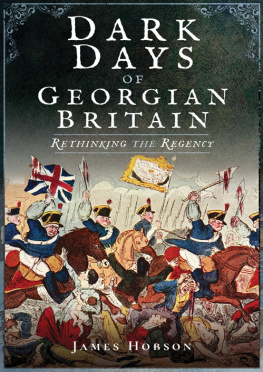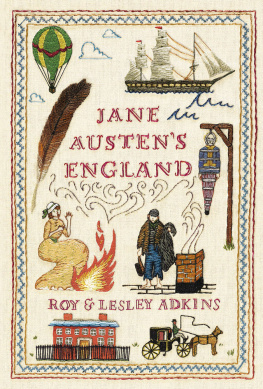GENTLEMEN OF UNCERTAIN FORTUNE

Published with assistance from the Annie Burr Lewis Fund.
Copyright 2019 Rory Muir
All rights reserved. This book may not be reproduced in whole or in part, in any form (beyond that copying permitted by Sections 107 and 108 of the U.S. Copyright Law and except by reviewers for the public press) without written permission from the publishers.
For information about this and other Yale University Press publications, please contact:
U.S. Office:
Europe Office:
Set in Van Dijck MT by IDSUK (DataConnection) Ltd
Printed in Great Britain by TJ International Ltd, Padstow, Cornwall
Library of Congress Control Number: 2019941049
ISBN 978-0-300-24431-1
A catalogue record for this book is available from the British Library.
10 9 8 7 6 5 4 3 2 1

CONTENTS

ILLUSTRATIONS

PREFACE
A NYONE WHO HAS READ Pride and Prejudice knows that the Bennets had a problem. Their five children were all girls and the family estate of Longbourn was entailed on the male line, so that when Mr Bennet died it would pass to a distant relative, the Rev. Mr Collins. The girls would each inherit a mere pittance, a thousand pounds of capital, which, safely invested, would scarcely yield enough to enable them to live in even the reduced circumstances of Miss Bates in Emma. Nor could they have much hope of improving their circumstances by working, for the only acceptable work for a woman of their class was as a governess, a companion or a schoolteacher, occupations that were notoriously underpaid. The obvious injustice of this arrangement has alerted modern readers to the plight of young women in Regency Britain who, if they lacked independent means, could only hope to obtain comfort and security through the lottery of marriage.
But suppose that the Bennets had five sons, not five daughters: the estate would pass to the eldest son the male counterpart of the gentle Jane. The other four boys would still have to make their way in the world, for they would inherit no more than if they had been girls. Their father, and after his death, their eldest brother, might give them some help in establishing themselves in a career, but they would be expected to become independent and make enough money to be able to support a wife and family, before they could contemplate marriage. What would they do for a living? What careers were open to the younger sons of good families in Britain in the late eighteenth and early nineteenth centuries? How could a gentleman work for his living without ceasing to be a gentleman?
There were limited choices facing a young man: he might go into the Church, or practise medicine or the law; he might even go into banking or one of the other respectable branches of trade; he might join the navy or the army; he might go out to India or one of the other colonies, or he might secure a government position. Few other possibilities existed, and they were usually unattractive or limited to a handful of places. Indeed, each of these careers had its own characteristics that gave it an appeal to some, while making it unsuitable to others. The purpose of this book is to explore these possibilities, to consider the prospects of the young men who embarked on these careers, and to examine the ingredients that would contribute to their success or failure. In addition, I hope to convey a sense of the experiences they would encounter in their career: to view things from an individual as well as a collective perspective how it felt, as well as how it worked.
The focus is on young men born in the second half of the eighteenth century, and in particular the generation who came of age around 1790, just before the long war with France broke out in 1793. This was the generation of the Duke of Wellington and of Jane Austen and her brothers; of George Canning and Lord Castlereagh; of Walter Scott and William Wordsworth although I have drawn examples from across the half-century and very slightly beyond. These young gentlemen were just getting established in their careers when Jane Austen wrote the drafts of her early novels, and were mid-career when her six novels were published between 1811 and 1818. They lived through the alarms and difficulties of the war with Revolutionary France in the 1790s, the fear of invasion by Napoleon in the early 1800s, and then the growing improvement in the fortunes of the war with Wellingtons campaigns in the Peninsula beginning in 1808. In 1815 Waterloo brought a lasting peace, but the next few years were just as difficult, as the economy faltered when the stimulus of war spending was withdrawn and foreign competition revived. After five turbulent years, prosperity and stability returned, just as the Regency was ending, and the comparatively tranquil reign of George IV began. These events helped to shape the careers of some young men of this generation most obviously the soldiers and sailors among them while having little direct influence on the careers of others, including most clergymen and lawyers. Some of these men helped shape the events of the time, but a great many more were swept along by the tide, with little control or even a sense of where they were going, and it is these ordinary young men who are the primary subject of this book.
Most of these young men were the sons of private gentlemen of independent means, or of men in the gentlemanly professions: clergymen, naval officers and the like; in other words the sons of men like Mr Bennet, or of the Rev. Mr Austen, Janes father. However, the careers open to the younger sons of the aristocracy were generally much the same as those open to the sons of other gentlemen, and many of their experiences were very similar, so that the examples include the sons and brothers of earls and viscounts as well as of the gentry. This is not to deny that rank and fortune were very considerable advantages (although not as great as good connections within the profession) and we shall see how they were brought to bear, but the young men in any particular career were all running in the same race, even if some were given a head start.
Not all the men whose experiences are discussed were younger sons, for some eldest sons embarked on a profession either from necessity, if their father was not wealthy, or from choice, and once they entered the race the advantage of birth, by itself, counted for little. Equally, many members of all these professions were not the sons of gentlemen but came from the middling classes sons of shopkeepers and farmers, clerks and tradesmen, and they shared many of the same experiences as their colleagues. Nonetheless this is predominately a book about the well-born second son and his younger brothers: about the spares who never became heirs.
It is also a book overwhelmingly about men. The challenges women faced were equally formidable but quite different, and have been admirably explored in a number of scholarly works including, most notably, Amanda Vickerys The Gentlemans Daughter. Women appear here largely as mothers and sisters, lovers and wives, and occasionally as patrons such as Lady Catherine de Bourg, while some of Austens other female characters also make appearances in order to shed light on social attitudes. But despite the relative absence of women from the text, I hope that the book illuminates the dilemmas they faced in marrying; what it meant to marry a young clergyman, naval officer or barrister; and also why there were so many young men of good family who were in no position to marry unless their intended had money of her own.
Next page
